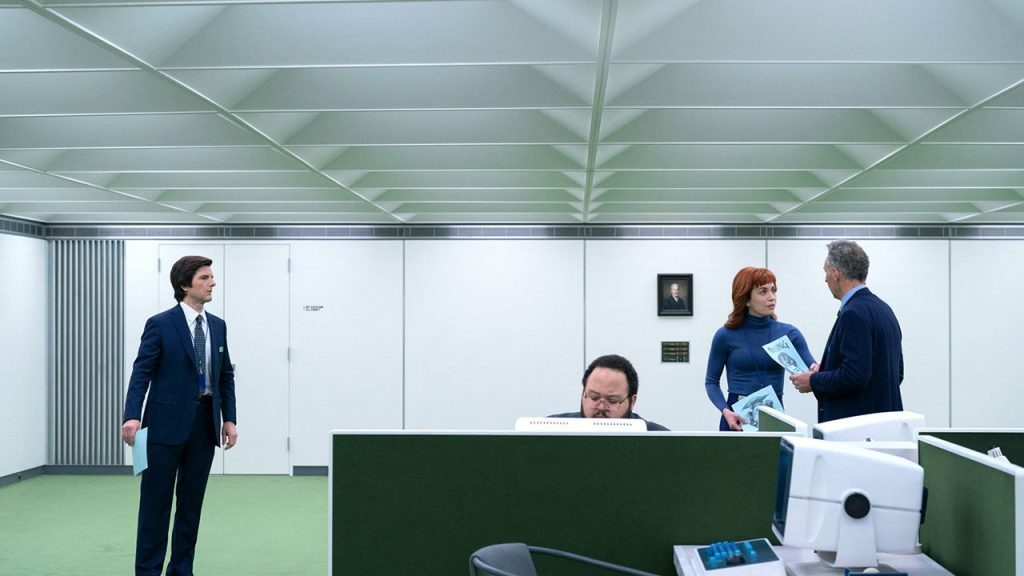There’s something eerie about the office environment.
It contains furniture, lighting, and doors, yet nothing that feels appropriate for a personal home. You dine in designated spaces, don dull office attire, and forge polite relationships with colleagues. It’s you, but it lacks the essence of your life. Occasionally, it seems that way. It’s like a mass-produced imitation of the designer purse that represents the full human experience.
The show Severance delves into the extremes of this artificiality. It’s a paranoia-inducing Philip K. Dick-style mind-bender beautifully wrapped in prestige television, examining the disconcerting strangeness of an office that exists just beyond the edges of reality.
Most of us have little choice but to spend a large chunk of our limited time on earth in an office, making us just as acquainted with its ambience as we are with our own reflections. Any small deviations from the norm stand out. This aligns with the concept of the “uncanny valley,” which suggests that humanoid robots that closely resemble real humans can provoke increased discomfort due to slight, peculiar differences.
Lumon is not the workplace we recognize; it is the one that haunts our dreams.
Picture Disney’s Hall of Presidents or the numerous android companions showcased at CES. The closer an object resembles reality, the more significant small, almost undetectable differences become. The only effective remedy against this phenomenon is achieving true perfection.
The uncanny valley is what renders the computer-generated imagery of Bob Zemeckis films so uncomfortable. It’s the reason we felt cringe during Mass Effect: Andromeda and why AI-generated babies elicit instinctual alarms. When something is not exactly right, it can feel profoundly wrong.



